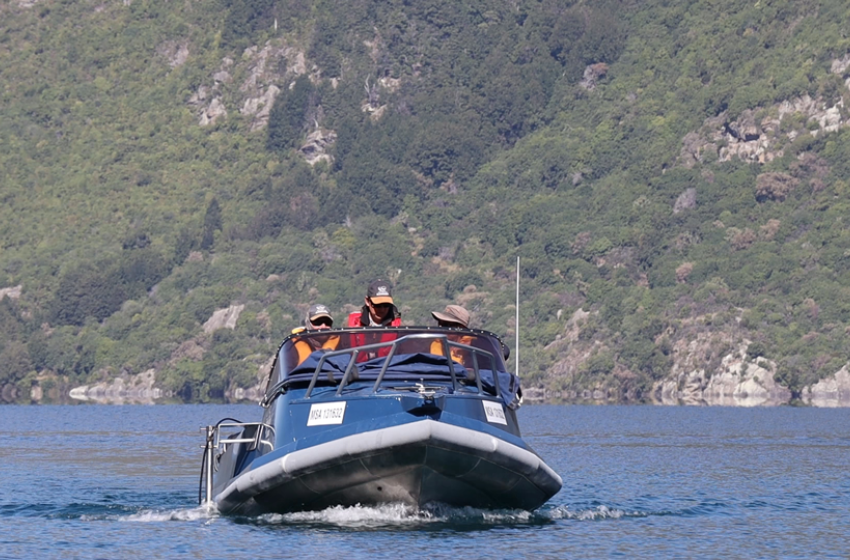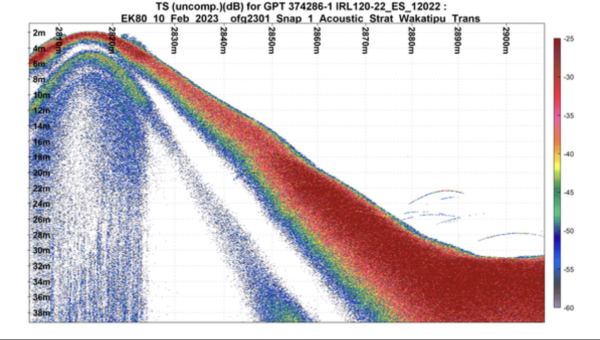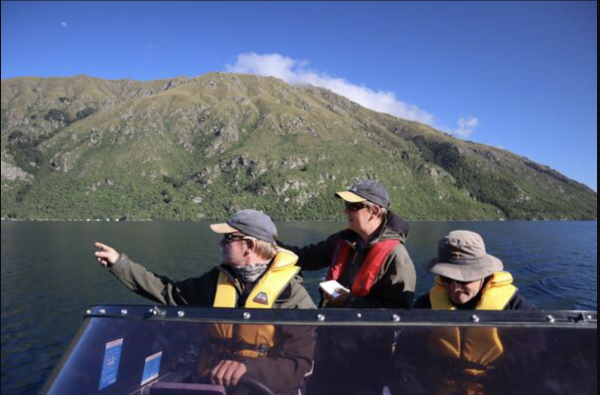Fish & Game goes deeper into lake fish knowledge
- Otago
- 17/02/2023

Scientists are sounding out trout and salmon populations in one of New Zealand’s most popular fishing destinations, Otago’s Southern Lakes.
Otago Fish & Game Council chair Colin Weatherall said Niwa had just completed a week of acoustic surveys of fish populations in lakes Wakatipu, Wanaka, Hawea and Dunstan.
Pictured: The Otago Fish & Game boat approaches the shoreline near Kingston during the acoustic monitoring of Lake Wakatipu on February 11, 2023. PHOTO: BRUCE QUIREY
“The Southern Lakes are among the most highly sought-after fishing playgrounds in the country,” Mr Weatherall said.
“Fish & Game recognises the value of fishing and recreation in our lakes, which contribute millions of dollars to the economy.
“The benefits of fishing to people’s health and wellbeing are also well documented."
Mr Weatherall said the council had made it a strategic priority to determine drivers for changes in the trout and salmon populations and to establish a long-term monitoring method for these amazing fisheries.
Fish & Game ecologist Jayde Couper said the survey was conducted over five days with a Fish & Game boat equipped with a highly sensitive echo sounder supplied by Niwa.
Zig-zagging along precisely determin
ed routes at various parts of the lakes, the sounder recorded fish at between 3 and 30 metres of depth.
“We are relieved weather conditions for the survey were almost perfect, considering the unfortunate hammering the North Island was getting from Cyclone Gabrielle at the time,” Mr Couper said.
Niwa previously conducted acoustic monitoring in the Southern Lakes in 2007, 2008 and 2009.

Above: An echo sounder screenshot shows a group of fish off Staircase Creek in Lake Wakatipu. The fish are inverted U shapes and the bottom is the thick red line. PHOTO: NIWA
This year’s survey has followed the same routes to enable comparisons with previous data.
“Niwa will analyse the data on behalf of Fish & Game, and we look forward to seeing their draft report in a few months.”
The acoustic surveys expand on Otago Fish & Game’s other methods to monitor fish species, including angler surveys, spawning surveys, drift dives, electric fishing, eDNA sampling, gill netting, and analysing competition catches.

Above: Fish & Game officers Ben Sowry (left) and Jayde Couper and NIWA chief scientist fisheries Dr Richard O'Driscoll (right) set a course. Photo: Bruce Quirey
Potential effects of climate change, fish harvesting and water quality were not fully understood, and it was hoped that long-term monitoring, including that done by other agencies and groups, would add to that knowledge.
Fish & Game has been monitoring freshwater fish and their habitats since the organisation’s inception more than 30 years ago.
“We are pleased to see other organisations taking a growing interest in the water quality of the Southern Lakes,” Mr Couper said.
“We look forward to engaging with them further, sharing information to protect and improve water quality, and helping to ensure that people can continue to enjoy angling in these world-class lake fisheries.”